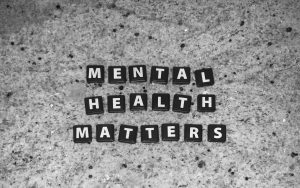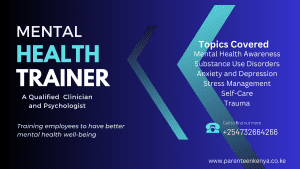I first experienced workplace anxiety when I started working remotely for a content writing agency.
I was exploring a new skill and lacked confidence that I could succeed.
In addition, I wasn't used to the constant corrections writers often receive.
Sometimes you would be told to redo half the article; other times, the edits were overwhelming.
The workplace policy was the more edits you receive, the higher your chances of losing your job—and it was not a joke.
There was also the pressure of meeting deadlines and competing with other proficient writers from around the world. I would be uneasy when I received a new task or after submitting work and waiting for feedback.
Other times, I would feel breathless, or my heart would palpitate just thinking how many edits I might receive and if it was the end for me.
Basically, that is the definition of workplace anxiety, where you feel discomfort and uneasiness that affects your mood, decision-making, and work performance. These feelings often appear when you are at work or in response to your work environment.
Today, Mental Awareness Kenya will help you understand workplace anxiety by looking at the causes, symptoms, and coping skills. But first, is it really workplace anxiety you are experiencing?
Do You Have Workplace Anxiety, or is it Anxiety at Work?

Workplace anxiety and anxiety at work may sound similar, but the two have some key differences. For instance, workplace anxiety refers to anxiety specifically related to your job or work environment.
It may be triggered by factors such as workload, job insecurity, difficult coworkers or managers, or the pressure to meet performance targets.
On the other hand, anxiety at work is a broader term that refers to any type of anxiety experienced while at work, whether related to job tasks or not.
The other contributors could include personal issues such as financial worries or relationship problems affecting your ability to focus and perform well. Some crucial signs to confirm you have workplace anxiety are:
- You feel calm, and anxiety almost goes to zero on your off days.
- Feelings of anxiety overwhelm you when you think about work (when at home), but are okay if you don’t think about it.
- You find it hard to talk to colleagues due to the volatile nature of the work culture, but you can easily talk with people outside your work environment.
From the above points, workplace anxiety occurs in response to stress at work, but if it were an anxiety disorder, it would persist regardless of your work situation.
Workplace Anxiety Causes

Various factors cause workplace anxiety, and it is crucial to identify these causes to effectively manage and prevent its effects. The table below outlines common direct and indirect causes of workplace anxiety.
| Direct Work-Related Causes | Indirect Personal Causes |
| High workload and job demands | Lack of work-life balance |
| Job insecurity and uncertainty about the future | Financial worries or debt |
| Poor communication with coworkers or supervisors | Relationship problems |
| Difficult or toxic work environment | Family or caregiving responsibilities |
| Fear of failure or making mistakes | Health issues or chronic illness |
| Lack of control or visible autonomy in the job | Substance abuse or addiction |
| Workplace bullying or harassment | Mental health conditions (e.g., depression, anxiety disorders) |
| Pressure to meet performance targets | Trauma or past experiences of workplace abuse |
Related: Breaking the stigma: What you need to know about mental health awareness in the workplace.

Signs and Symptoms of Workplace Anxiety
Workplace anxiety is a common issue that can impact individuals whether they work online or at a physical office. It can cause physical, emotional, and cognitive symptoms that affect your overall well-being and job performance.
Understanding the signs and symptoms of workplace anxiety is essential in order to identify the issue and seek help when needed. The most common signs and symptoms of workplace anxiety include:
- Physical symptoms such as trembling, sweating, increased heart rate, and nausea
- Difficulty concentrating or making decisions
- Irritability or mood swings
- Fatigue or exhaustion
- Insomnia or difficulty sleeping
- Avoiding specific tasks or responsibilities
- Procrastination or difficulty starting tasks
- Overthinking or excessive worry
- Panic attacks
- Increased use of alcohol or drugs to cope
These symptoms can be temporary or ongoing, and can vary in severity depending on the individual and the specific work-related stressors being experienced.
If you leave it untreated, workplace anxiety can harm your job performance, relationships with coworkers and supervisors, and overall quality of life.
It is essential to seek help from a mental health therapist if you are experiencing symptoms of workplace anxiety.
Coping with Workplace Anxiety

A Work Health 2023 study in the UK showed that 60% of employees have anxiety; of these, 65% were females. Sadly, only 10% of these employees sought mental health support.
Kenya is not far left behind in these statistics. It helps to give an overall picture of how anxiety affects everyone. The following are effective coping strategies to help you manage workplace anxiety:
- Identify the triggers: Try to identify the specific work-related stressors causing your anxiety. Afterward, come up with a plan to address or mitigate them. Let's use a real-life example to explain this point.
After reading an article like this one, Pendo started keeping a journal to track her thoughts and feelings throughout the workday.
She noticed that she tends to feel the most anxious when she has multiple deadlines looming and receives negative feedback from her boss or coworkers.
Using this information, Pendo developed a plan to address these triggers. She set more realistic deadlines for herself and prioritized her tasks to reduce feeling overwhelmed.
She also scheduled regular check-ins with her boss and coworkers to receive feedback and clarify expectations.
- Exercise regularly: Regular exercise can help reduce stress and anxiety, improve mood, and increase overall well-being.
- Prioritize self-care: Make time for activities you enjoy, and help you feel relaxed. Examples include reading, listening to music, or spending time with loved ones.
- Seek God: The God of the Bible is an ever-present God ready to listen and help you deal with various life challenges. Seek Him by reading the scriptures, meditating on his promises, and praying for yourself. However, you feel the most impact when you believe in Jesus Christ unto salvation, and He resides in you and leads your life.
- Practice relaxation techniques: Calming techniques such as progressive muscle relaxation, deep breathing, or meditation can help reduce anxiety symptoms and promote a sense of calm. Use the following video to practice the progressive muscle relaxation technique.
- Set realistic boundaries: Learn to say "no" to tasks or responsibilities causing excessive stress or anxiety, and prioritize your well-being.
- Seek reliable support: Talk to a trusted friend, family member, or mental health professional about your anxiety, and consider joining a support group for individuals experiencing workplace stress.
- Practice time management: Prioritize tasks and set realistic deadlines, and break larger projects into smaller, more manageable tasks to reduce feelings of overwhelm.
- Consider therapy: Working with a therapist can help you identify the root causes of your workplace anxiety and develop strategies for managing and reducing symptoms.
Let Mental Health Wellness Kenya Help

Mental Health Wellness Kenya helps employees deal with workplace anxiety and other mental health challenges. We provide comprehensive training that empowers employees to tackle most psychological, cognitive, and emotional challenges.
Eventually, companies experience improved productivity, reduced employee turnover, and maintain a healthy work environment.
In addition, we also offer one-on-one counseling to anyone who feels the general training isn't enough because of other personal challenges. Contact us today for all your mental health training and counseling needs.
Images courtesy of Pexels and Unsplash.

